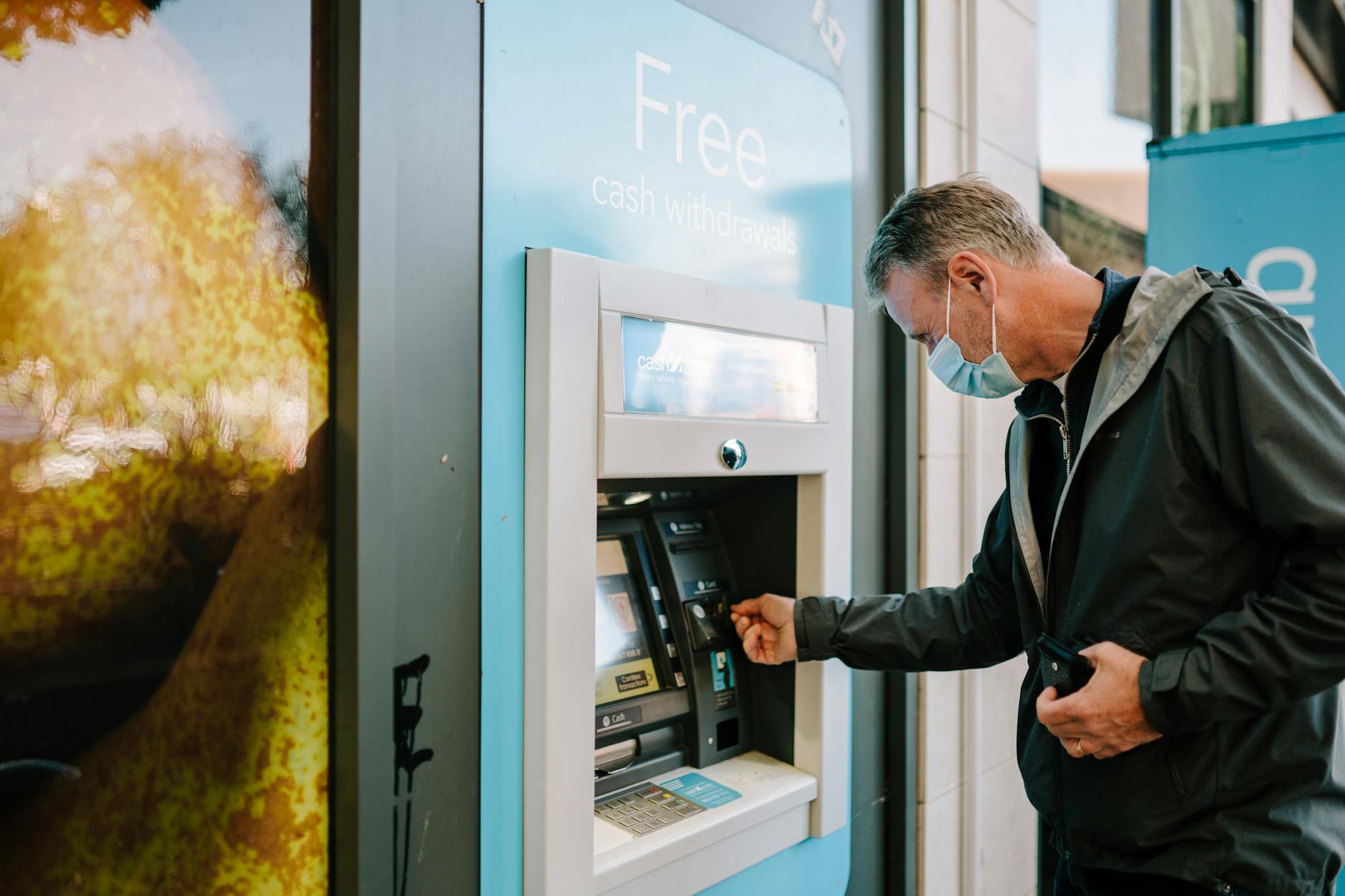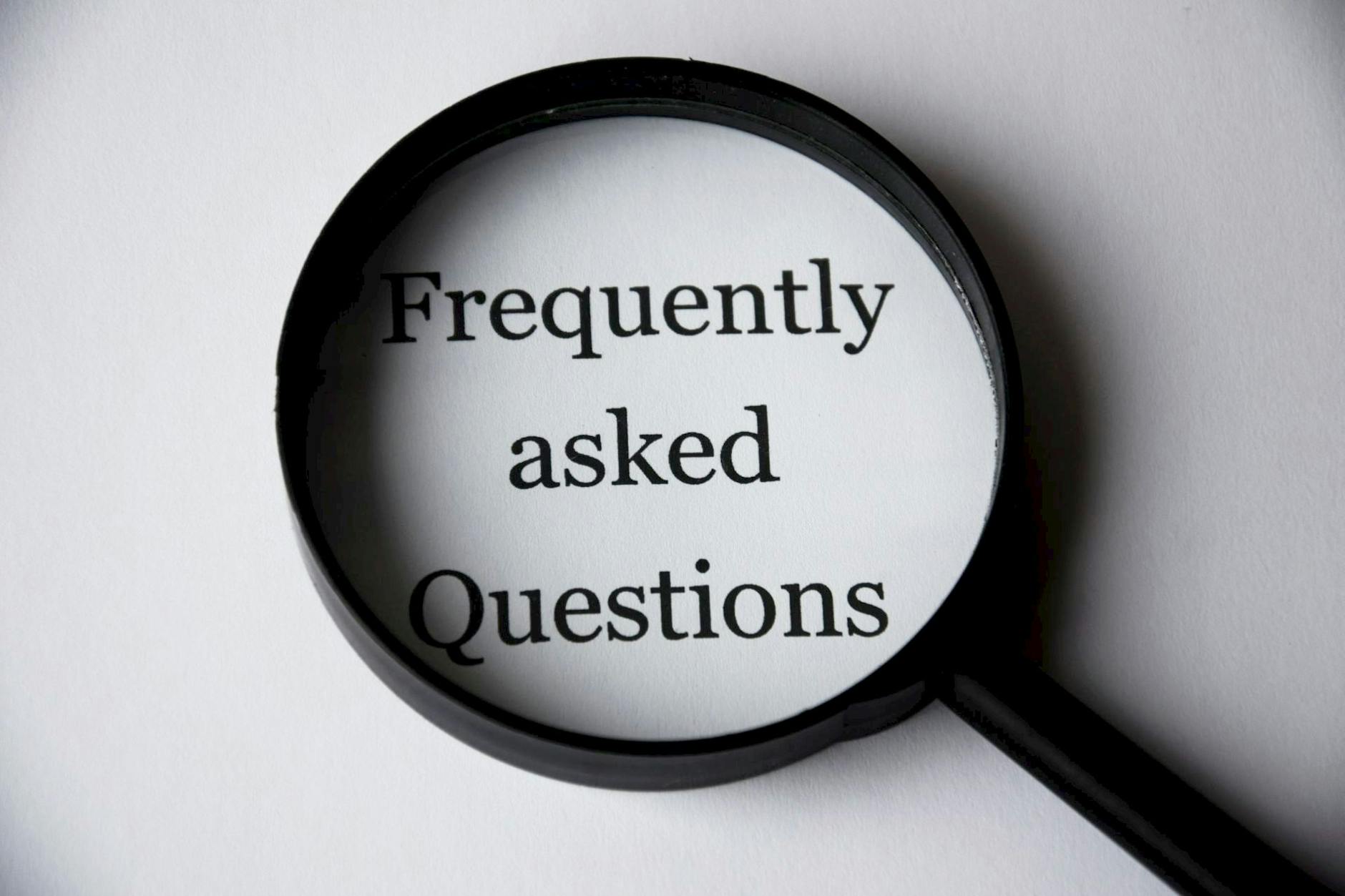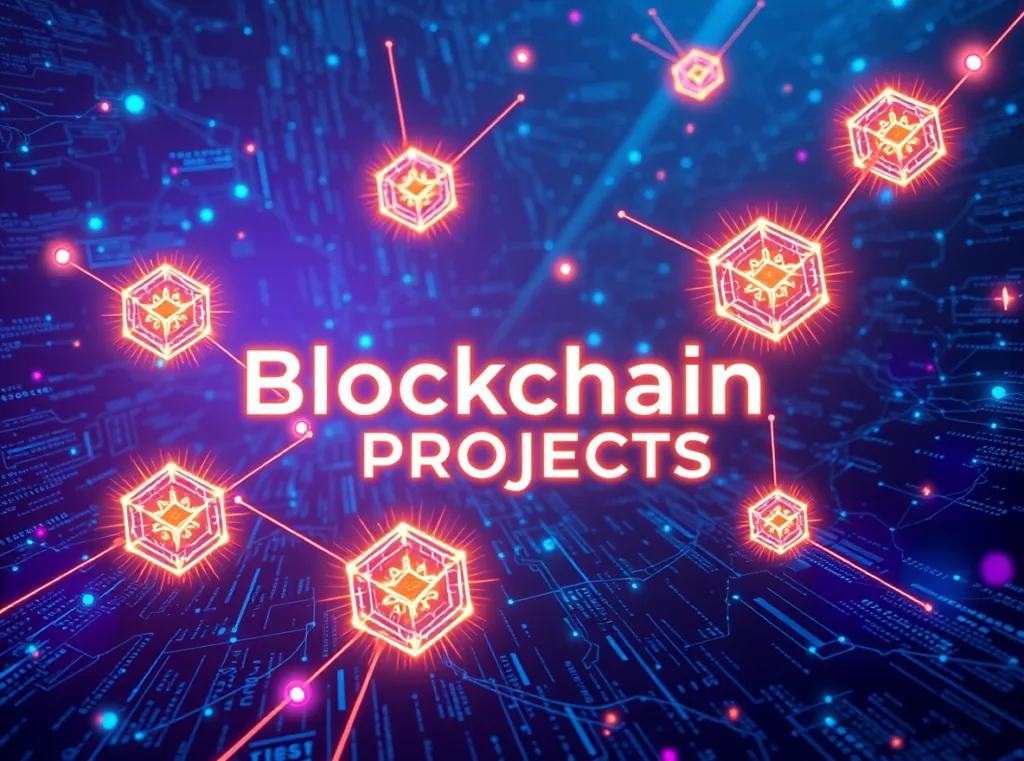
Introduction
The world of blockchain is evolving at breakneck speed, ushering in a new era of digital innovation. 🚀 While many associate blockchain primarily with cryptocurrencies, its potential reaches far beyond financial transactions. Prepare to be amazed as we explore seven groundbreaking blockchain projects that could revolutionize various aspects of our daily lives.
From reshaping the financial landscape to empowering individuals with control over their personal data, these innovative ideas are set to disrupt traditional systems and transform the way we interact with technology. 🌐 Imagine a future where your medical records are securely accessible from anywhere in the world, or where you can participate in decision-making processes of global organizations from the comfort of your home. These scenarios are not just pipe dreams but tangible possibilities thanks to blockchain technology.
In this article, we’ll dive deep into the realm of blockchain projects & innovation, exploring how it’s poised to revolutionize finance, supply chain management, digital identity, asset tokenization, social media, healthcare, and organizational governance. Buckle up as we embark on a journey through the seven most exciting blockchain projects that could reshape your future in ways you never thought possible!

Decentralized Finance (DeFi): Revolutionizing Financial Services
Decentralized Finance, or DeFi, is transforming the landscape of financial services through blockchain projects & technology. This innovative approach offers a wide range of financial products and services without the need for traditional intermediaries.
A. Automated lending and borrowing platforms
DeFi platforms enable users to lend and borrow cryptocurrencies directly, without the involvement of banks. These platforms use smart contracts to automate the process, ensuring transparency and efficiency.
| Feature | Traditional Banking | DeFi Lending |
|---|---|---|
| Intermediaries | Required | Not required |
| Interest rates | Set by banks | Determined by supply and demand |
| Accessibility | Limited by location and credit score | Open to anyone with internet access |
| Collateral | Often required | Typically, crypto assets |
B. Smart contract-based insurance
DeFi introduces a new paradigm in insurance through smart contracts. These self-executing agreements automatically process claims and payouts based on predefined conditions, reducing fraud and streamlining the insurance process.
C. Yield farming opportunities
Yield farming allows users to earn rewards by providing liquidity to DeFi protocols. This innovative approach offers:
-
- Higher returns compared to traditional savings accounts
-
- Flexibility in asset allocation
-
- Potential for compounding gains
D. Decentralized exchanges (DEXs)
DEXs facilitate peer-to-peer trading of cryptocurrencies without centralized intermediaries. Key advantages include:
-
- Enhanced privacy and security
-
- Reduced counterparty risk
-
- Lower fees compared to centralized exchanges
-
- Access to a wider range of tokens and trading pairs
With these revolutionary features, DeFi is poised to reshape the financial industry in the blockchain projects & innovation, offering greater accessibility, transparency, and efficiency. As we explore further, we’ll see how blockchain technology is also transforming supply chain management, bringing unprecedented levels of transparency and efficiency to global trade.

Supply Chain Management: Enhancing Transparency and Efficiency
Now that we’ve explored the revolutionary impact of DeFi, let’s delve into how blockchain is transforming supply chain management. Blockchain projects & technology offers unprecedented transparency and efficiency in this crucial business function, addressing long-standing challenges in the industry.
A. Streamlining payments and settlements
Blockchain projects in supply chain management are revolutionizing payment processes, making them faster, more secure, and cost-effective. By leveraging smart contracts, these systems automate payments based on predefined conditions, eliminating the need for intermediaries and reducing transaction fees.
| Traditional Payments | Blockchain-Enabled Payments |
|---|---|
| Slow processing times | Near-instantaneous settlements |
| High transaction fees | Minimal to zero fees |
| Limited visibility | Full transaction transparency |
| Prone to errors | Automated and error-free |
B. Reducing fraud and counterfeiting
One of the most significant advantages of blockchain projects & technology in supply chain management is its ability to combat fraud and counterfeiting. By creating an immutable record of each product’s journey, blockchain ensures:
-
- Product authenticity verification
-
- Traceability of materials and components
-
- Elimination of double-invoicing and other fraudulent practices
-
- Enhanced consumer trust in product origins
C. Real-time tracking of goods
Blockchain projects & technology enables real-time tracking of goods throughout the supply chain, offering unprecedented visibility and control. This feature allows:
-
- Accurate inventory management
-
- Proactive issue resolution
-
- Improved demand forecasting
-
- Enhanced customer satisfaction through timely updates
By implementing blockchain projects & technology in supply chain management, businesses can significantly improve their operational efficiency, reduce costs, and build stronger relationships with partners and customers. Next, we’ll explore how blockchain is revolutionizing personal data control through digital identity solutions.

Digital Identity: Empowering Personal Data Control
As we explore the transformative potential of blockchain technology, we now turn our attention to a crucial aspect of our digital lives: personal identity management. Blockchain projects & technology -based digital identity solutions are revolutionizing how we control and share our personal information, offering unprecedented security and privacy.
A. Seamless cross-border identity management
Blockchain technology is breaking down barriers in cross-border identity management. By creating a decentralized and immutable record of identity information, individuals can easily prove their identity across different countries and jurisdictions. This seamless approach eliminates the need for multiple identity documents and reduces the risk of identity fraud.
| Benefits of Blockchain-based Cross-border Identity Management |
|---|
| Reduced bureaucracy and paperwork |
| Faster identity verification processes |
| Enhanced security against identity theft |
| Improved interoperability between different systems |
B. Secure and private credential verification
Blockchain-powered credential verification systems offer a new level of security and privacy. These systems allow individuals to share only the necessary information with third parties, without revealing sensitive data. For example, a person can prove they are of legal drinking age without disclosing their exact birth date or other personal details.
Key features of secure credential verification:
-
- Zero-knowledge proofs
-
- Selective disclosure
-
- Cryptographic security
-
- Tamper-evident records
C. Self-sovereign identity solutions
Self-sovereign identity (SSI) is perhaps the most revolutionary aspect of blockchain-based digital identity. SSI puts individuals in complete control of their personal information, allowing them to decide what data to share, with whom, and under what circumstances.
Benefits of self-sovereign identity:
-
- Enhanced privacy and data protection
-
- Reduced risk of identity theft and fraud
-
- Improved user experience across digital services
-
- Greater control over personal reputation management
As we move towards a more interconnected digital world, blockchain-based digital identity solutions are paving the way for a future where individuals have greater control over their personal data while enjoying seamless and secure interactions across various platforms and borders.

Tokenization of Real-World Assets
Blockchain technology is revolutionizing the way we perceive and interact with real-world assets through tokenization. This innovative approach is reshaping investment landscapes and creating new opportunities for investors of all levels.
A. Democratizing investment opportunities
Tokenization breaks down traditional barriers to entry, allowing a wider range of investors to participate in previously inaccessible markets. By dividing high-value assets into smaller, more affordable units, blockchain enables:
-
- Reduced minimum investment requirements
-
- Increased accessibility for retail investors
-
- Diversification of investment portfolios
B. Increased liquidity in traditionally illiquid markets
One of the most significant advantages of asset tokenization is the enhanced liquidity it brings to traditionally illiquid markets. This transformation offers several benefits:
| Traditional Markets | Tokenized Markets |
|---|---|
| Limited trading hours | 24/7 trading availability |
| Lengthy settlement times | Near-instantaneous settlements |
| High transaction costs | Reduced fees and intermediaries |
C. Fractional ownership of high-value assets
Tokenization enables fractional ownership, allowing investors to purchase a portion of high-value assets that were previously out of reach. This concept opens up new possibilities:
-
- Real estate: Invest in prime properties without the need for substantial capital
-
- Fine art: Own a share of masterpieces from renowned artists
-
- Rare collectibles: Participate in the ownership of unique and valuable items
By leveraging blockchain technology, the tokenization of real-world assets is creating a more inclusive and efficient investment ecosystem. This innovation is poised to transform various industries and redefine the concept of ownership in the digital age.

Decentralized Social Media: Reclaiming Online Privacy
As we explore the transformative potential of blockchain, let’s delve into how decentralized social media platforms are revolutionizing online privacy and user empowerment.
A. Fair content monetization models
Decentralized social media platforms are introducing innovative ways to reward content creators fairly. Unlike traditional platforms that often benefit from user-generated content without adequate compensation, blockchain-based social networks offer:
-
- Direct creator-to-audience transactions
-
- Micropayments for content engagement
-
- Token-based reward systems
| Traditional Social Media | Decentralized Social Media |
|---|---|
| Platform-centric revenue | Creator-centric revenue |
| Advertising-driven | User-driven monetization |
| Limited creator control | Full creator ownership |
B. Censorship-resistant platforms
Blockchain technology enables the creation of censorship-resistant social media platforms, ensuring freedom of expression and information sharing. Key features include:
-
- Immutable content storage
-
- Distributed network architecture
-
- No central authority for content removal
C. User-owned data and content
Decentralized social media platforms prioritize user ownership of personal data and content. This paradigm shift offers:
-
- Enhanced data privacy
-
- Portable digital identities
-
- User-controlled data sharing
By leveraging blockchain technology, these platforms empower users to reclaim control over their online presence and interactions. As we move forward, we’ll explore how blockchain is revolutionizing healthcare and improving patient care.

Blockchain in Healthcare: Improving Patient Care
Blockchain technology is revolutionizing the healthcare industry, offering innovative solutions to long-standing challenges. Let’s explore how blockchain is transforming patient care across various aspects of healthcare.
A. Streamlined insurance claims processing
Blockchain’s immutable and transparent nature is revolutionizing insurance claims processing in healthcare. By leveraging smart contracts, the claims process becomes more efficient and less prone to errors or fraud.
| Traditional Claims Processing | Blockchain-Enabled Claims Processing |
|---|---|
| Time-consuming manual reviews | Automated verification via smart contracts |
| Prone to errors and fraud | Transparent and tamper-proof records |
| Delayed payments | Near-instantaneous settlements |
B. Decentralized telemedicine platforms
Blockchain-powered telemedicine platforms are enhancing patient access to healthcare services while ensuring data security and privacy.
-
- Secure video consultations with encrypted data transmission
-
- Tamper-proof electronic prescriptions
-
- Decentralized storage of patient records for easy access across providers
C. Transparent drug supply chain management
Blockchain projects & technology is addressing the critical issue of counterfeit drugs by creating an immutable record of a drug’s journey from manufacturer to patient.
-
- Real-time tracking of drug shipments
-
- Verification of drug authenticity at each stage
-
- Improved recall processes for defective batches
D. Secure and interoperable medical records
Blockchain projects & technology enables the creation of a unified, secure, and interoperable system for storing and sharing medical records.
-
- Patient-controlled access to personal health information
-
- Seamless sharing of records between healthcare providers
-
- Reduction in duplicate tests and procedures
By implementing blockchain projects & technology in these key areas, healthcare providers can significantly improve patient care, enhance operational efficiency, and reduce costs. As we move forward, we’ll explore another groundbreaking application of blockchain technology that’s reshaping organizational structures and decision-making processes.

Decentralized Autonomous Organizations (DAOs): Redefining Governance
Decentralized Autonomous Organizations (DAOs) are revolutionizing traditional governance structures, offering a new paradigm for organizational management and decision-making. These blockchain-based entities operate without centralized leadership, instead relying on smart contracts and community participation to function.
Automated Execution of Organizational Rules
DAOs leverage smart contracts to automate the execution of organizational rules, ensuring transparency and efficiency in operations. This automation reduces the need for intermediaries and minimizes human error.
-
- Smart contracts enforce predefined rules
-
- Automated processes reduce operational costs
-
- Increased transparency in organizational actions
Global Collaboration Without Borders
One of the most significant advantages of DAOs is their ability to facilitate global collaboration without geographical limitations. This feature opens up new possibilities for international projects and initiatives.
| Traditional Organizations | DAOs |
|---|---|
| Limited by location | Borderless collaboration |
| Time zone constraints | 24/7 operation |
| Legal jurisdiction issues | Globally accessible |
Transparent Fund Allocation
DAOs offer unprecedented transparency in fund allocation, with all financial transactions recorded on the blockchain projects & technology. This transparency builds trust among stakeholders and ensures responsible use of resources.
-
- Real-time tracking of fund movements
-
- Publicly accessible financial records
-
- Reduced risk of misappropriation
Community-Driven Decision Making
Perhaps the most transformative aspect of DAOs is their community-driven decision-making process. Token holders can propose and vote on organizational decisions, creating a truly democratic governance model.
-
- Proposal submission by community members
-
- Open discussion and debate periods
-
- Voting process using blockchain technology
-
- Automatic implementation of approved decisions
As we explore the potential of DAOs, it becomes clear that they represent a significant shift in how organizations can be structured and managed. Next, we’ll address some frequently asked questions about blockchain projects and their transformative potential.

Conclusion
Blockchain technology continues to revolutionize various sectors, offering innovative solutions to long-standing challenges. From decentralized finance and supply chain management to digital identity and tokenization of real-world assets, blockchain projects are reshaping industries and empowering individuals. The potential for enhanced privacy, improved healthcare systems, and novel governance models through DAOs further underscores the transformative power of this technology.
As blockchain projects continue to evolve and mature, they present unprecedented opportunities for individuals and businesses alike. By staying informed about these revolutionary ideas and their potential applications, one can position themselves at the forefront of technological innovation. Embracing blockchain technology today could lead to a more efficient, transparent, and equitable future tomorrow.
FOR MORE TOPICS ON SCIENCE RELATED & FOR LATEST ….

FAQ
What are the most common applications of blockchain projects & technology?
Blockchain projects & technology has found applications in various industries. Here are some of the most common uses:
-
- Cryptocurrencies
-
- Supply chain management
-
- Healthcare records
-
- Digital identity verification
-
- Smart contracts
-
- Voting systems
-
- Decentralized finance (DeFi)
How do blockchain projects differ from traditional microcontroller projects?
| Aspect | Blockchain Projects | Microcontroller Projects |
|---|---|---|
| Focus | Decentralization and data integrity | Hardware control and automation |
| Scale | Often large-scale and distributed | Usually small-scale and localized |
| Connectivity | Requires network connection | Can operate independently |
| Security | Cryptographic methods | Physical security measures |
| Skill set | Programming, cryptography, networking | Electronics, embedded systems |
Are there any certifications available for blockchain professionals?
Yes, several organizations offer blockchain certifications. Some popular options include:
-
- Blockchain Council Certifications
-
- Certified Blockchain Professional (CBP)
-
- Certified Blockchain Developer (CBD)
-
- Certified Ethereum Expert (CEE)
-
- CompTIA Blockchain Specialty certification
These certifications can help professionals validate their skills and knowledge in blockchain projects & technology.
How can I stay updated on newly launched blockchain projects?
To stay informed about the latest blockchain projects:
-
- Follow blockchain news websites
-
- Subscribe to blockchain-focused RSS feeds
-
- Join blockchain communities on social media platforms
-
- Attend blockchain conferences and meetups
-
- Participate in online forums and discussion groups
-
- Follow influential blockchain developers and companies on Twitter
What is some beginner-friendly online projects to learn blockchain development?
For those looking to start with blockchain development, consider these projects:
-
- Create a simple cryptocurrency
-
- Build a decentralized voting application
-
- Develop a basic smart contract
-
- Create a blockchain-based supply chain tracking system
-
- Build a decentralized file storage solution
These projects can help you understand the fundamentals of blockchain technology and its practical applications.
